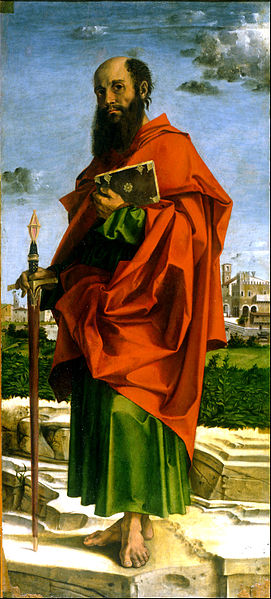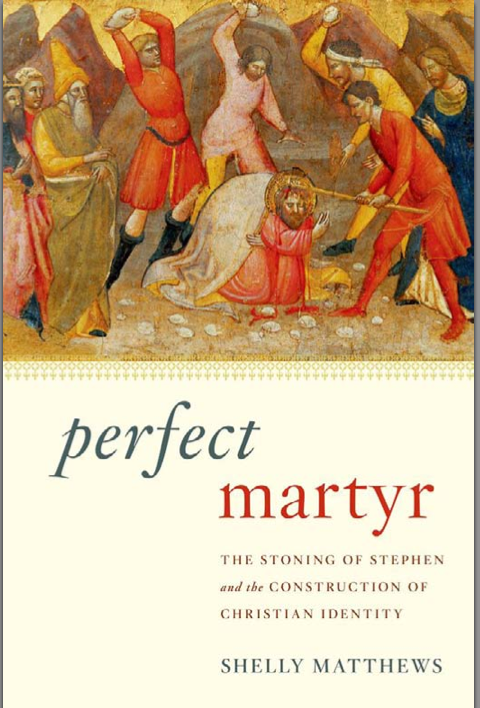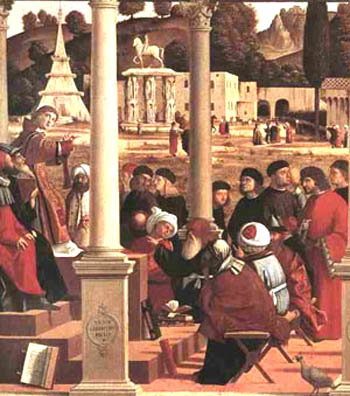The gospels and book of Acts do not contain the names of their authors.
The first evidence we have that Luke, a companion of Paul, was the author of the canonical gospel and Acts is found in Irenaeus, AH 14.4.1:
But that this Luke was inseparable from Paul, and his fellow-labourer in the Gospel, he himself clearly evinces, not as a matter of boasting, but as bound to do so by the truth itself. For he says that when Barnabas, and John who was called Mark, had parted company from Paul, and sailed to Cyprus, “we came to Troas;” and when Paul had beheld in a dream a man of Macedonia, saying, “Come into Macedonia, Paul, and help us,” “immediately,” he says, “we endeavoured to go into Macedonia, understanding that the Lord had called us to preach the Gospel unto them. Therefore, sailing from Troas, we directed our ship’s course towards Samothracia.” And then he carefully indicates all the rest of their journey as far as Philippi, and how they delivered their first address: “for, sitting down,” he says, “we spake unto the women who had assembled;” (Acts 16:13) and certain believed, even a great many. And again does he say, “But we sailed from Philippi after the days of unleavened bread, and came to Troas, where we abode seven days.” (Acts 20:5,6) And all the remaining [details] of his course with Paul he recounts, indicating with all diligence both places, and cities, and number of days, until they went up to Jerusalem; and what befell Paul there (Acts 21), how he was sent to Rome in bonds; the name of the centurion who took him in charge (Acts 27); and the signs of the ships, and how they made shipwreck (Acts 28:11); and the island upon which they escaped, and how they received kindness there, Paul healing the chief man of that island; and how they sailed from thence to Puteoli, and from that arrived at Rome; and for what period they sojourned at Rome. As Luke was present at all these occurrences, he carefully noted them down in writing, so that he cannot be convicted of falsehood or boastfulness, because all these [particulars] proved both that he was senior to all those who now teach otherwise, and that he was not ignorant of the truth. That he was not merely a follower, but also a fellow-labourer of the apostles, but especially of Paul, Paul has himself declared also in the Epistles, saying: “Demas hath forsaken me, … and is departed unto Thessalonica; Crescens to Galatia, Titus to Dalmatia. Only Luke is with me.” (2 Tim. 4:10, 11) From this he shows that he was always attached to and inseparable from him. And again he says, in the Epistle to the Colossians: “Luke, the beloved physician, greets you.” (Col. 4:14)
But surely if Luke, who always preached in company with Paul, and is called by him “the beloved,” and with him performed the work of an evangelist, and was entrusted to hand down to us a Gospel, learned nothing different from him (Paul), as has been pointed out from his words, how can these men, who were never attached to Paul, boast that they have learned hidden and unspeakable mysteries?
Before Irenaeus (around 180 c.e.) there is no record of Luke outside the Pastoral epistles, Colossians and Philemon. In Colossians 4.14 and Philemon 24 there is no hint that Luke is a scribe or holds any unusually close place to Paul. The reference in 2 Timothy 4:11 is discussed separately here in my notes from Hoffmann.
Justin Martyr as late as 150 c.e. discusses writings that appear to be at least similar to our gospels but he does not know them by any authorial names. He knows only a source he names “Memoirs of the Apostles”, a title that sounds a little like Memoirs of Xenophon. (And many details of his “gospel narrative” are either not found in the canonical gospels or are even at odds with them. See my Justin archive.)
Apparently some time between Justin and Irenaeus the gospels had acquired the names we use for them today. There is no known evidence to point to any other conclusion.
What is significant about the above passage from Irenaeus is that it relies exclusively on the Pastoral epistles and one passage from Colossians for the source and identity of the name of Luke, and he takes for granted that this is the same person responsible for Luke-Acts.
Irenaeus calls on no traditions or extra canonical sources for his assertions. If any were known to Irenaeus it is, as the old but still challenging argument goes, it is very difficult to imagine why he would have failed to use them.
Marcionites appear to have responded to Irenaeus’s claim by accusing their rivals of falsely attributing Luke’s name to their gospel’s title. We learn this from Tertullian’s sarcasm when he was “refuting” Marcionites for not accepting the claims that their gospel was authored by Luke:
How, then, does that [Marcion’s gospel] agree with ours, which is said not to be (the work) of apostles, but of Luke? Or else, again, if that which Marcion uses is not to be attributed to Luke simply because it does agree with ours (which, of course, is, also adulterated in its title), then it is the work of apostles. AM 4.3.5
That is a little difficult to follow and needs to be read in the context of Tertullian’s larger argument about the apostolic (meaning apostles of the Twelve) of the gospels.
Hoffmann, Marcion: On the Restitution of Christianity, argues that the companionship tradition of Luke was an orthodox creation to serve their anti-Marcionite purposes. (Discussed more fully in my earlier post.)
For Marcion the gospel was not something that was received but something revealed, and that to Paul alone. The true gospel was a revelation attributable to none other than Jesus Christ, not to any apostle. The role of the written gospel was not that of a “canonical” document set word for word in stone, but something that could be edited and corrected over time. Marcionism accordingly modified some of its teachings over the generations.
The prologue of “Luke” also emphasizes a very “unMarcionite” concept: what is believed among the faithful is not a revelation of Paul, and to be found in Paul’s writings alone, but something that is transmitted down a chain of “eye-witnesses and ministers” and via the written words of Luke. Luke’s preface claims the gospel has been “received” from the beginning after all. And it is the tradition of reception that must be guarded, not the revelation to Paul.
So the evidence is consistent with the name of Luke making its first appearance as the title of the gospel, as well as in the Pastoral letter claiming to be by Paul — see earlier post, in the context of a war with Marcionism.
Like this:
Like Loading...








